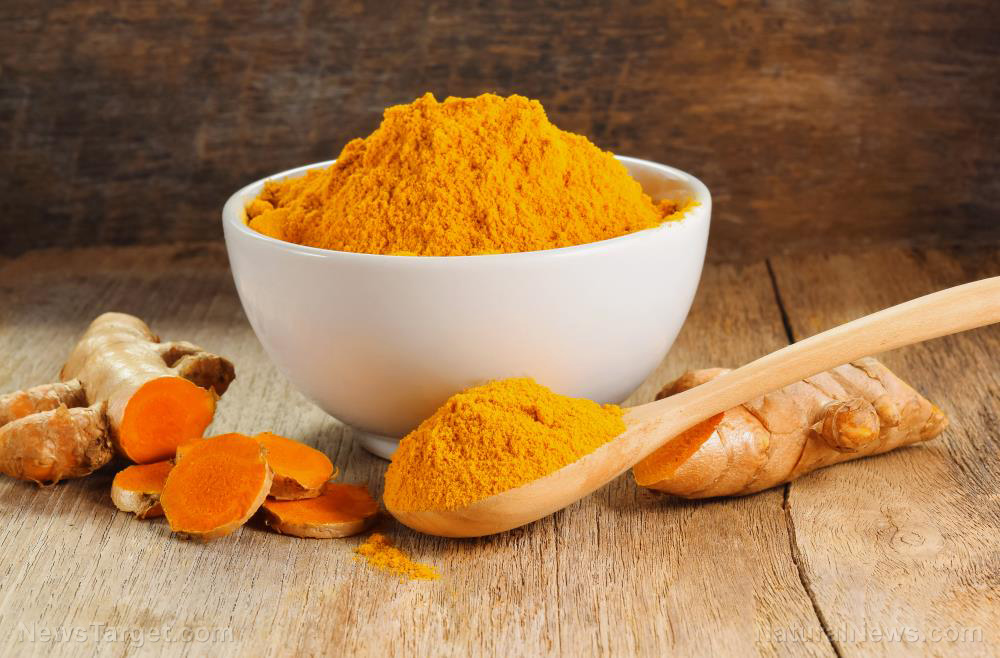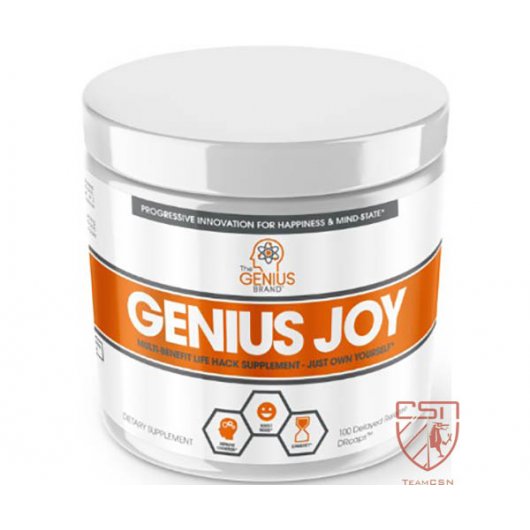Nature Knows and Psionic Success
God provides
These Brain-Enhancing Drugs Claim to Make You More Creative—but Do They Work?

In the early 1960s, a Romanian chemist and psychologist named Dr. Corneliu E. Giurgea synthesized a drug called piracetam. He was working at a pharmaceutical company in Belgium, where he was attempting to concoct a calming drug that would induce sleep. Instead, piracetam was initially used to treat motion sickness. Along the way, Dr. Giurgea found that it had distinctive and useful properties, namely the enhancement of mental faculties. In 1972, he coined the term “nootropics” (combining the Greek words for “mind” and “to bend” or “to turn”) to identify drugs like piracetam, that, he wrote, “selectively improve efficiency of higher telencephalic integrative activities”—which is a rather garbled way of saying they make you smarter. For a substance to count as nootropic, Giurgea stipulated in a 1977 paper that it must, among other things, foster “enhancement of learning acquisition,” aid in “resistance to impairing agents,” promote “enhanced resistance to brain ‘aggressions,’” and cause none of the “usual pharmacological effects of neuro psychotropic drugs.” Today, there are countless substances casually referred to as nootropics or “smart drugs” that don’t meet all of the criteria Giurgea set out; in fact, it’s not clear that any substances can, for instance, protect the brain from disease, pollution, or other “aggressions.” But you can buy—legally, on the internet—any number of chemical cocktails marketed as nootropics, from phosphatidylserine to Bacopa monnieri to other racetams (the class of substances to which piracetam belongs) like aniracetam and oxiracetam. The marketing hype for these drugs—and they are classified as either supplements or drugs by the Food and Drug Administration (FDA)—includes improved memory, concentration, and focus, as well as mood elevation. Do they live up to the hype? Many of the experts I reached out to, including Dr. Anjan Chatterjee, professor of neurology at Pennsylvania Hospital, wrote back saying […]
Bioactive compound from the Rhodiola plant improves memory

Rhodiola rosea is a traditional medicinal plant for improving brain function. The researchers discovered the substance FAE-20 to have a memory-enhancing effect. A new approach for dementia research. Credit: Pixabay In an ageing society, more people are suffering from memory disorders. The progressive loss of memory severely impairs the quality of life of those affected. So far, no drugs are known to prevent age-related cognitive decline. For the first time, a study conducted by scientists from the Leibniz Institutes for Neurobiology (LIN) and for Plant Biochemistry (IPB) and published in the journal Science Advances now proves the memory-enhancing effect of a plant ester as an active ingredient from the medicinal plant Rhodiola rosea. Apart from physical exercise, there are no effective strategies to prevent age-related memory loss. In traditional medicine, plant preparations are widely used to enhance memory performance . However, due to fluctuating drug concentrations, these can be inactive or lead to incorrect dosages – especially if the drug is not known at all. In such cases, neither the effects nor the side effects are predictable for the patient or the doctor. Rhodiola rosea, the rosewort plant, has been known for a long time to exert a beneficial effect on mental performance. First author of the study, Dr. Birgit Michels from the LIN, says, "In order to make this knowledge useful for medicine, we wanted to find out which specific substances from Rhodiola improve memory. After all, without an identified active ingredient no targeted dosage and plant breeding, no quality control and therefore no drug development are possible." Rhodiola constituent improves memory performance in old age. Credit: Christina Nath; © Leibniz Institute for Neurobiology, Magdeburg, Germany Extensive biotests at the LIN in Magdeburg, initially on fly larvae, were combined with phytochemical analyses by scientists at the IPB in […]
Research shows that eating citrus fruits can reduce stroke risk

( Natural News ) Citrus fruits are rich in vitamin C, which can help strengthen the immune system. But according to study, citrus fruits can also help lower your risk of stroke . Earlier research has determined that certain orange phytochemicals can even help protect against intracerebral hemorrhage and significantly improve blood flow in the brain. The study, which was conducted at the University of East Anglia , showed that eating citrus fruits, especially oranges, can greatly reduce the risk of ischemic stroke. The scientists involved in the study compared the health of women who consumed oranges and grapefruit regularly to those who did not. Flavonoids and blood vessel health The researchers examined the flavonoid content of citrus fruits and how they affect blood vessel health. They also analyzed an estimated 14 years’ worth of Nurse’s Health Study data, which monitored the health and diets of around 70,000 women. The researchers studied correlations among six flavonoid sub-classes from citrus fruits linked to risks of hemorrhagic, ischemic, or complete stroke. (Related: Citrus Extracts Found to Enhance Heart Health in Small Study .) Data revealed that the women who ate the highest amounts of orange and grapefruit , along with juices from the two fruits, had better blood circulation and a 19 percent reduced stroke risk associated with blood clotting compared to the women who didn’t eat the same amount of citrus fruit. Separate studies of flavonoids in fruit confirm these results. Overall, an increased consumption of various kinds of fruit can help lower stroke risk and improve one’s well-being. 100% organic essential oil sets now available for your home and personal care, including Rosemary, Oregano, Eucalyptus, Tea Tree, Clary Sage and more, all 100% organic and laboratory tested for safety. A multitude of uses, from stress reduction to topical first […]
Remove 70% of toxins in your body with this one simple exercise

( Natural News ) Getting rid of toxins in the body sounds like a monumental task, but it’s surprisingly easy to get rid of a giant proportion of them. In fact, with one simple exercise that requires no equipment other than your body, you can get rid of as much as 70 percent of the toxins that are currently wreaking havoc on your health. Perhaps best of all, you don’t even need to be particularly athletic to pull this exercise off. Deep breathing has the power to get rid of toxins thanks to its effects on the lymphatic system. The lymphatic system is what neutralizes and carries toxins from your cells to the circulatory system, where they should get cycled through your kidneys and liver and then excreted. Unfortunately, however, the lymphatic system doesn’t have a pump the way your circulatory system has the heart keeping everything moving. Instead, your lymphatic system depends on body movement and breathing. When you don’t move enough and your breaths are too shallow, your body simply cannot detoxify effectively. Your lymphatic system slows, and you might feel a range of symptoms ranging from weight gain and high blood pressure to inflammation and fatigue. That’s why you need to focus on deep breathing. There are several different approaches you can take. One popular method is belly breathing, which entails sitting or lying flat in a position you find comfortable with one hand on your belly right under your ribs and the other on your chest. From this position, take one deep breath through your nose while letting your belly nudge your hand outward. Ensure your chest isn’t moving as this happens. Mother Nature’s micronutrient secret : Organic Broccoli Sprout Capsules now available, delivering 280mg of high-density nutrition, including the extraordinary "sulforaphane" and "glucosinolate" nutrients […]
Do Nootropics Actually Work? I Took a Bunch of Magic Brain Pills to Find Out

Do Nootropics Actually Work? I Took a Bunch of Magic Brain Pills to Find Out Illustration by Alicia Tatone Swallow a pill and become a better you? Nootropics sound too good to be true. So we sent one staffer to investigate. The resurgent popularity of nootropics—an umbrella term for supplements that purport to boost creativity, memory, and cognitive ability—has more than a little to do with the recent Silicon Valley-induced obsession with disrupting literally everything, up to and including our own brains. But most of the appeal of smart drugs lies in the simplicity of their age-old premise: Take the right pill and you can become a better, smarter, as-yet-unrealized version of yourself—a person that you know exists, if only the less capable you could get out of your own way. Federal law classifies most nootropics as dietary supplements, which means that the Food and Drug Administration does not regulate manufacturers’ statements about their benefits (as the giant “This product is not intended to diagnose, treat, cure, or prevent any disease” disclaimer on the label indicates). And the types of claims that the feds do allow supplement companies to make are often vague and/or supported by less-than-compelling scientific evidence. “If you find a study that says that an ingredient caused neurons to fire on rat brain cells in a petri dish,” says Pieter Cohen, an assistant professor at Harvard Medical School, “you can probably get away with saying that it ‘enhances memory’ or ‘promotes brain health.’” Since dietary supplements do not require double-blind, placebo-controlled, pharmaceutical-style human studies before going to market, there is little incentive for companies to really prove that something does what they say it does. This means that, in practice, nootropics may not live up to all the grandiose, exuberant promises advertised on the bottle in […]
The Best Nootropics for Social Anxiety

Networking takes a lot of energy, and it can be stressful and exhausting. Nootropics — aka “smart drugs” — can help you perform better in social situations, lowering anxiety and giving you the mental and physical energy you need. The best nootropics for social anxiety are: aniracetam, l-theanine, nicotine, l-tyrosine, and theacrine. Read on to discover why these nootropics for social anxiety work and the best dosage for each. What about alcohol? Good networkers may appear to be drinking alcohol at social events, but find out what they’re really doing with that drink. My job requires me to speak and interact with a lot of people, whether that’s talking onstage to a big crowd, networking at events, discussing cutting-edge research on the Bulletproof Radio podcast, or managing hundreds of employees. So it might surprise you to learn that I used to have a lot of social anxiety. When I’d meet people, insecurities would overwhelm me, and anxious thoughts would crowd my mind: “People don’t like me” or “Should I shake their hand?” or “That was a dumb thing to say.” So if you get nervous in social situations, know this — I’ve been there and it sucks. I feel your pain. The problem with social anxiety is that it’s likely getting in the way of your performance. Networking takes a lot of energy. It requires you to pay attention, remember details, focus, hold your body in a certain way, monitor your talking (Are you talking too much? Too little?), ask the right questions, listen, and the list goes on. You’re dealing with a lot of variables. It’s inherently stressful and requires more electrons firing in your brain than watching “Breaking Bad.” Being anxious is not going to help you manage that stress very well. That’s why I recommend certain […]
You are 550% more likely to get a respiratory infection if you receive the flu vaccine

( Natural News ) Let’s assume for a moment that the flu vaccine provided a 100 percent guarantee against contracting influenza (which it doesn’t, but just pretend it does). Would it make sense to vaccinate your family against the flu if doing so meant you increased their risk of contracting other upper respiratory illnesses by more than five times? Of course not! Reducing the risk of contracting one illness only to heighten the risk of multiple others is simply illogical. And yet that is exactly what the flu vaccine – which is only between 33 and 70 percent effective, anyway – does. A study published in the journal Clinical Infectious Diseases actually found that not only did the inactivated influenza vaccine not provide additional protection against the flu virus, but it also left recipients lacking in “temporary non-specific immunity that protected against other respiratory viruses.” (Related: Flu vaccine BOMBSHELL: 630% more “aerosolized flu virus particles” emitted by people who received flu shots… flu vaccines actually SPREAD the flu .) Playing Russian roulette with the flu shot Natural Health 365 reported that while U.S. authorities have tended to look the other way regarding flu vaccine side effects, researchers in China have been far more proactive about determining exactly what the effects of these vaccines might be. The study mentioned above, which was conducted in Hong Kong, set out to compare the health of vaccinated patients versus those who have not been immunized in relation to either the flu and other illnesses. The trial included patients between the ages of 6 and 15, some of whom received Sanofi Pasteur’s Vaxigrip vaccine, while others received a saline placebo shot. The participants were then tracked for an average of 272 days to see whether they went on to develop the flu and/or other […]
The all-around superfood: Curcumin in turmeric prevents liver fibrosis

( Natural News ) Turmeric is a well-known superfood because it offers many health benefits, and researchers continue to discover more benefits from it. In a study published in the Chinese Journal of Natural Medicines , researchers discovered that curcumin, the active ingredient in turmeric, can prevent and reverse liver fibrosis . The study, which was conducted by a team of researchers from Nanjing University of Traditional Chinese Medicine in China, examined the inhibitory effects of curcumin and its underlying mechanisms in liver fibrosis. Research has shown that liver fibrosis can be treated. However, there are no approved agents available for the treatment and prevention of this condition until today. For the study, the research team induced liver injury in mice and in the rat hepatic stellate cell line HSC-T6 to serve as experimental models. Then, they treated the mice and cells with curcumin. After the treatment, the research team found that the treatment of curcumin reversed liver injury in mice and the hepatic cell line. Based on the findings of the study, the research team concluded that curcumin could be used to prevent and even reverse liver fibrosis. Liver fibrosis develops when the healthy tissue of the liver becomes scarred , leading them to function improperly. Liver fibrosis can occur due to many health conditions, such as autoimmune hepatitis, biliary obstruction, iron overload, nonalcoholic fatty liver disease, viral hepatitis B and C, and alcoholic liver disease. A person with liver fibrosis may experience symptoms, such as appetite loss, difficulty concentrating, fluid buildup in the legs or stomach, jaundice (yellowing of the skin and the whites of the eyes), nausea, sudden weight loss, and weakness. Mother Nature’s micronutrient secret : Organic Broccoli Sprout Capsules now available, delivering 280mg of high-density nutrition, including the extraordinary "sulforaphane" and "glucosinolate" nutrients found […]
Why you need magnesium if you’re constantly stressed or anxious

( Natural News ) Severe cases of stress and anxiety can be difficult to deal with and may even require medication. Unfortunately, prescription medicines are not only expensive, but they also cause a wide variety of side effects. Magnesium, an important dietary mineral, has been called the “original chill pill” because of its ability to lift mood and improve anxiety. Because of its effects, it is now being considered as a natural aid for stress management . Magnesium performs many roles in the body. In fact, it takes part in over 600 different metabolic functions. Despite this, it is the second most common nutritional deficiency in the world, occurring even in developed countries. A deficiency in magnesium has been linked to an increased incidence of depression and anxiety. As proof of this, researchers sometimes induces depression in mice by depriving them of magnesium. The mineral is crucial to preventing and treating depression, thanks to several specific functions: It increases the levels of GABA Gamma-aminobutyric acid (GABA) is a neurotransmitter, a chemical that the nervous system uses to communicate with its components, as well as other parts of the body. Neurotransmitters are related to specific functions and bodily phenomena. As it happens, GABA is crucial to relaxation. Magnesium binds with GABA molecules and stimulates GABA receptors in the brain. As an inhibitory neurotransmitter, GABA is able to put the brain’s functions on hold, enabling the mind and body to relax and rest. Low levels of GABA are associated with a variety of symptoms, including confusion, sleeplessness, and stress-related disorders. These include generalized anxiety disorder, panic attacks, and even irritable bowel syndrome. Mother Nature’s micronutrient secret : Organic Broccoli Sprout Capsules now available, delivering 280mg of high-density nutrition, including the extraordinary "sulforaphane" and "glucosinolate" nutrients found only in cruciferous healing foods. […]
10 Natural Ways to Sleep better

Most people find it hard sleeping early and sleeping for long, most call it insomnia but the truth is that there are little things we could do to actually improve our sleep pattern. The benefits of adequate sleep range from bette r heart health and less stress to improved memory and weight loss. Here are some tips to improve your sleep pattern – Develop a sleep pattern – It might seem tempting, but sleeping until noon on Saturday will probably disrupt your biological clock and cause more sleep problems. Going to bed at the same time every night even on weekends, holidays, and other days off helps to establish your internal sleep/wake clock and reduces the amount of tossing and turning required to fall asleep. Change your diet – Avoid food and drinks that contain caffeine, such as coffee, tea, soft drinks, and chocolate, by mid-afternoon. Let your dinner be as light as possible, and finish it a few hours before bedtime. Skip spicy or heavy foods, which can keep you awake with heartburn or indigestion. Don’t smoke- A study found that smokers are four times more likely to not feel as well rested after a full night’s sleep than nonsmokers. Smokers also tend to sleep later than usual and they sleep for a short time. Smoking also exacerbates sleep apnea and other breathing disorders such as asthma, which can make it difficult to get restful sleep. Skip the late night alcohol- It might seem that a few shots may make you doze off but that kind of sleep is usually not good enough and short, once you wake up you might have a hard time going back to sleep. Reduce the heat – Relaxing on the beach on a hot day is great but that kind of heat […]
The Genius Brand Genius Joy 100 DRcaps

Share Facebook Twitter Google Plus Email What is Genius Joy? Feeling blue? Can’t think straight? Tied down with endless piles of paperwork? Life getting you down? Add a spring to your step with the latest all-natural nootropic supplement; Genius Joy. Launched in 2017, Genius Joy is the latest nootropic supplement from The Genius Brand helping you “Bring joy back into your life”. Genius Joy is a “Progressive Innovation for Happiness & Mind-State”. This is a fancy way of saying it helps release serotonin and dopamine — the two primary brain chemical which play important cognitive roles in mood and motivation. What are the key ingredients and their benefits Genius Joy claims that all the below ingredients give the proposed benefits. 5HTP – Boosts serotonin levels, which can improve mood and reduce depression, insomnia headaches and obesity. They have used HTPurity which is a supreme trademarked version of 5HTP. N-Acetyl-L-Tyrosine (NALT) & Rhodiola5Plus- Another group of ingredients that have shown to reduce mental and physical stress. S-Adenosylmethionine Tosylate Disulfate (SAMe) – Supports well-being and mood, promotes healthy brain function and may help lessen symptoms of anxiety, depression & PMS. TheaKalm – Can help improve focus and stabilise mood by increasing L-Theanine. Red Panax ginseng – It’s been said this can improve thinking, concentration and memory. Why choose The Genius Brand? This natural nootropic is backed by the Genius Promise – no unnecessary fillers, no dyes, no artificial flavours and no artificial sweeteners. This means the product is a pure, clean sports supplement. It is a clinically dosed supplement with no proprietary blend, formulated to serve a true purpose. What are the key features? Genius Joy selects high-quality ingredient formats, some of which are premium, well-researched brands, and supplies them at adequate dosages. No proprietary blend No banned substances Vegetarian/vegan Who […]
5 Things You Need to Know About Nootropics

How much do you know about nootropics?| CentralITAlliance/iStock/Getty Images The following is a guest post by biochemist and nutritionist Dr. Mike Roussell, PhD, co-founder of Neutein. Nootropics are substances (supplements but also drugs ) that improve brain function, focus, attention, and creativity . They have been popular among ‘biohackers’—a niche group of people obsessed with experimenting and finding ways to improve mental and physical performance—but now the use of nootropics is becoming more mainstream. Before you start using nootropics, it is important to know these five things. 1. Quality is important Research published in the Journal of the American Medical Association shows that in the last nine years unapproved pharmaceutical agents were found in 776 different dietary supplements. This study emphasized the fact that quality ingredients and manufacturing is important. Often, nootropic ingredients are purchased on the open market, and one cannot trace their source and verify the purity of the ingredients. Giving people peace of mind about quality and purity was an important factor when Neutein was developed. This is why Neutein only contains patented all-natural plant-based ingredients where we can track the journey from seed to field to capsule. Neutein is also manufactured in an FDA inspected facility that is GMP certified 2. Not All nootropics are researched in healthy people Brains are all different. Especially the brains of healthy individuals compared to people that may already be suffering from cognitive decline. Because there is a large interest in improving the health of failing brains, more research goes into nootropics that might help people in those populations, which doesn’t always translate into supplements working in a healthy brain. For example, a couple of studies show that when 400 mg of the nootropic alpha-GPC is taken three times a day by people with mild to moderate Alzheimer’s disease, […]
Lion’s mane lives up to its reputation as a great natural mood enhancer

( Natural News ) Lion’s mane ( Hericium erinaceus ) is no ordinary mushroom, as can be seen from its unique appearance. In addition to its physical traits, lion’s mane is also special due to the different health benefits that it possesses. This includes its ability to enhance mood and cognitive skills . Unlike other mushrooms, lion’s mane has tiny icicles where its cap is supposed to be. Even with its intimidating appearance, it is considered staple herb in traditional Chinese medicine and has been used for thousands of years. Countless studies have been conducted to find scientific evidence behind the use of lion’s mane in treating various diseases. So far, many of these studies have been successful and have even led to the discovery of new applications. One interesting property of lion’s mane is it serves as a neuroprotective agent that’s effective against mood disorders and more severe neurological conditions. These properties can be attributed to the abundance of bioactive compounds in lion’s mane. There are over 70 compounds that have been identified in lion’s mane so far. These compounds have properties ranging from antibiotic to antioxidant to anti-inflammatory properties. Studies have shown that consuming lion’s mane leads to reduced symptoms of depression. Although depression is prevalent nowadays, the true reason behind it remains elusive. However, one of the most common theories regarding the cause of depression is that there is chronic inflammation in the brain. The anti-inflammatory property of lion’s mane has been associated with its ability to improve depression. Lion’s mane contains amycenone, a compound that contributes to the mushroom’s anti-inflammatory activity. This compound is believed to be the active compound behind the anti-depressive property of lion’s mane. In addition to improving depression, taking amycenone has also been shown to improve sleep disorders, anxiety, schizophrenia, and […]
Essential oils offer a natural, side effect-free way to address anxiety

( Natural News ) The connection between the brain and a person’s sense of smell is very powerful. This is why certain scents can bring back emotions and memories that are tucked away in the brain. Aromatherapy takes advantage of this strong connection by using the smell of essential oils to stimulate healing. One of the diseases that can be cured through aromatherapy is anxiety . Aromatherapy has been used for thousands of years to improve physical, mental, and spiritual health . It involves the use of essential oils, which are highly concentrated aromatic extracts derived from plants. These essential oils are either inhaled or applied onto the skin. However, it is important to note that most essential oils can only be applied to the skin if they are diluted. Otherwise, they can irritate the skin. Scents emanating from essential oils can trigger receptors that transmit signals for the production of neurotransmitters and can affect both mental and physical health. Anxiety is a mental health condition characterized by extreme feelings of fear and apprehension . When left untreated, anxiety disorders can become disabling. Psychotherapy is commonly used for treating anxiety but many people have started using aromatherapy as well. Essential oils that are commonly used for treating anxiety include the following: Lavender — Lavender essential oil is commonly used for its calming effect but it can be applied for many other purposes. Studies have shown that lavender can effectively treat anxiety, depression, and mood swings. Aside from these, it can also be used as a sedative and a neuroprotectant. Lavender oil is just as effective as tranquilizers that are commonly used for treating generalized anxiety disorder but it doesn’t have any side effects. Many people also prefer lavender because it is can be topically applied and it can also […]
Researchers add prebiotics to infant formula in an effort to improve learning, memory, brain development to match that of breastfed babies

( Natural News ) Breastfeeding your child is still the safest and healthiest way to nourish your baby . Scientists and nutritionists alike have observed the myriad of benefits that breastfeeding brings, from an increased bond with the baby to an infant that develops healthier than its baby formula-fed counterparts. That said, there are families that — for one reason or another — opt to give their children infant formula instead. These breastmilk substitutes are far and away more inferior from their naturally-derived cousins but they perform their intended purpose relatively well, or at least up to a certain point. This hasn’t stopped researchers though from trying to mimic the real thing. Recently, a team from the University of Illinois College of Agricultural, Consumer, and Environmental Sciences concluded that infant formula supplemented with prebiotics can improve the memory and brain development in piglets . This is the first study that analyzed the specific effects prebiotics in baby formulas can have in the brain development of children. Other studies focused on prebiotics combined with other formula components. Authors of the study, which included Ryan Dilger, associate professor at the university, say that their dietary supplementation can “influence brain development” in pigs which could be similar in human children. Pigs, unlike rats and mice, share a similar digestive profile to that of humans and generally behave the same way as well. As explained by lead author Stephen Fleming, a doctoral student in the Neuroscience Program at the university: “There hasn’t been a lot of work looking at the gut-brain axis in humans, but a lot of rodent work is showing those connections. This is taking it to an animal model that is a lot closer to human infants and asking if that connection still exists and if we can tease out […]
Prepare yourself for SHTF: Exercises you’ll need for survival

( Natural News ) Preppers need not restrict their preparations to stockpiling, building shelters, and making bugout plans. They also need to strengthen their bodies and their minds. An article in Survivopedia recommends several types of physical and mental training that will put you in the best shape for escaping and surviving when SHTF. Calm your mind through meditation Your mind is an important part of your body. You must be able to stay calm even when the world is falling apart. Otherwise, you will not be able to execute your emergency plans. Meditation is a great way to achieve a clear mind. It lets you concentrate on your breathing instead of random thoughts. Sit in whatever position you prefer, keeping your back straight. Close your eyes and focus on your breathing for the next few minutes. Increase the duration of each session. Consider setting aside some time to unplug yourself from distracting electronics. Don’t use any of your phones or appliances unless when they’re necessary. (Related: Exercise CAN save your life, especially when it comes to brain health .) Exercises to build up arm strength In addition to clearing up your mind, you must build muscles for the strength to haul important and heavy loads. You will need very specific weight training exercises that target important parts of your body. In the suitcase carry exercise, you hold a free weight in one hand and carry it for a distance. Maintain your center of balance and keep your shoulders level. Alternate between hands to even out the weight training. 100% organic essential oil sets now available for your home and personal care, including Rosemary, Oregano, Eucalyptus, Tea Tree, Clary Sage and more, all 100% organic and laboratory tested for safety. A multitude of uses, from stress reduction to topical […]
Epilepsy and Memory… | October 21, 2018
To say that lack of memory is a major worry for those of us with epilepsy is hardly a surprise. In fact, it’s the number one concern. Simply put, memory is our brain’s ability to store information and find it again later. Chemical and electrical changes happen in your brain when new memories are made. It’s a natural brain process that requires continuing attention and recording by parts of your brain. Seizures interfere with your memory by interfering with attention or input of information. Confusion often follows a seizure, and during this foggy time, new memory traces aren’t being laid down in the brain. Tonic-clonic (grand mal) seizures in which you lose consciousness can interfere with normal brain processes and disrupt the registration phase of short-term memory. Sometimes longer term memories from the period prior to the seizure are lost as well, since these memories may have not yet being fully integrated into your brain’s memory system. There are many different ways to classify how memory works. Some people rely more on their verbal memory, remembering in terms of words or sounds, while others use their visual memory, relying on pictures or spatial relationships. This can be for lots of reasons, including the type of seizures you have, the effects of medication, the effect of concentration or mood, lack of sleep, age, or the effect of epilepsy surgery. Common everyday memory problems include: Being unable to come up with a word that we feel is “on the tip of our tongue”, apparently because of a verbal memory processing problem. Having to go back to check to see if something was done, such as turning off the stove, probably reflecting a failure to pay adequate attention at the time. Forgetting where we put something, probably a visual-spatial memory process problem. […]
4 Ways to Increase Brain Power that May Prevent Alzheimer’s Disease

Photo credit: Hero Images If you were taught that you’re born with all the brain cells you’ll ever get and it’s all downhill from there, it’s time for a rethink. Mounting research suggests you can improve your brain no matter what your age, making it stronger now and protecting it for the long term. In fact, while surveys have found that 60 percent of Americans consider Alzheimer’s disease a natural part of getting older, scientists say the opposite. “We’re finally able to use the terms ‘Alzheimer’s disease’ and ‘prevention’ in the same sentence,” says Richard Isaacson, MD, director of the Alzheimer’s Prevention Clinic at Weill Cornell Medicine. And the same may be true for other forms of cognitive decline. The best time to start your brain-improvement plan: now. Alzheimer’s-related brain changes that can lead to cognitive impairment-and prevent the lightning-fast thinking you’re used to-start as early as your 30s or 40s. Yet whether you’re younger or older than that, making good choices in what you do, eat, and think can make a big difference in how your gray matter works later on. “There’s not an age that’s too early or too late to think about better brain health,” says Dr. Isaacson. Your brain’s four favorite life preservers include some that probably look familiar: The activity, foods, and sleep your heart loves also keep your brain in shape. Add some quality thinking time to that list, and your ideal plan looks like this: Photo credit: MichaelSvoboda – Getty Images Getting your body into action helps clear your brain of a protein fragment called amyloid, which is believed to accumulate in and “gunk up” the brains of people with Alzheimer’s. “There’s no drug available that can lower amyloid,” says Dr. Isaacson. “The only thing we know that can do it is […]
Four rational reasons to avoid the flu shot and what to do instead to protect your health

( Natural News ) It’s that time of the year again: Flu season! Doctors, nurses, pharmacies and even well-meaning relatives may be pushing you to get the flu shot, but it’s important to note that these vaccines are by no means as safe, effective or free of side effects as the drug manufacturers and medical community would like you to believe. Derek Henry, founder of Healing the Body , recently noted on an informative Real.video clip that there are at least four good reasons not to get the flu shot this year. And that does not mean you have to simply submit to getting ill, either. There is still plenty of time to take proactive, natural steps to boost immunity and prevent getting sick. (Related: Flu vaccine paradox spreading globally as more vaccinated people catch the flu .) 1. There is no evidence that flu shots actually work The first, solid reason not to get the flu shot is that there is no real evidence that it actually works. The Flulaval vaccine insert itself admits: There have been no controlled trials adequately demonstrating a decrease in influenza disease after vaccination with Flulaval. 2. These vaccines have not been proven to be safe Not only is there no evidence that the flu shot works, but there is also no real evidence that it’s safe either. The insert declares: Safety and effectiveness of Flulaval in pediatric patients have not been established. … Flulaval has not been evaluated for carcinogenic or mutagenic potential, or for impairment of fertility. Is it really worth the risk to take something this untested when the flu shot only provides at best a 50 to 70 percent guarantee of protection, and at worst – as was the case during the last flu season – only provides a […]
Beto supporters can’t name a single accomplishment, but they irrationally support Beto anyway, because it’s “popular” to do so

( Natural News ) Before he decided to run against Sen. Ted Cruz, few people outside of Rep. Robert “Beto” O’Rourke’s Texas congressional district knew who he was. After he filed, the dishonest “establishment” media and Hollywood elite did all they could throughout the summer to pretend he had even a snowball’s chance in Hades to unseat Cruz and turn half of Texas’ senatorial delegation blue. They talked about his “charisma,” his “appeal” to Left-wing voters, his heritage, his youthfulness, all while pouring millions of dollars into his campaign. What no one ever talked about, however, was his accomplishments, which would help explain why even his young supporters can’t name any of them. Campus Reform sent a correspondent , Cabot Phillips, to Texas A & M University to ask students if the election were held “today,” who they would vote for. While most said they would pull the lever for O’Rourke, they also could not point to any of his specific accomplishments as a U.S. representative. All they see is a “D” behind his name. Cruz is currently leading – by a good margin – in most surveys, but as Phillips noted, “O’Rourke has a decided lead amongst Millennials and college students” (thanks mostly to being brainwashed into unquestionably supporting the party of the Donkey). The sited noted: Supporters of Sen. Cruz have claimed that though O’Rourke possesses plenty of smooth rhetoric, he lacks in substance and qualifications. Wanting to see if O’Rourke’s supporters could detail accomplishments of the Texas Congressman, Campus Reform’s Cabot Phillips headed to Texas A&M to ask his supporters a simple question: Can you name an accomplishment of his? Without a doubt, the answer was overwhelmingly no. “Umm, I’m not aware of any specific accomplishments,” said one student. This is why not everyone should vote […]
